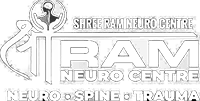Trauma
All Types of Head Injuries (Brain Injuries) Head injuries affect the physiological and psychological functioning of the body. The
ਐਂਬੂਲੈਂਸ ਬੁੱਕ ਕਰੋ
ਮੁਲਾਕਾਤ ਬੁੱਕ ਕਰੋ
All Types of Head Injuries (Brain Injuries) Head injuries affect the physiological and psychological functioning of the body. The
Microscopic & Endoscopic Surgery Stroke is a result of the disruption in blood supply to the brain. There are several
The brain is the regulator, controller unit of the body that allows us to perform all functions and tasks. A
Brain Tumours: Understanding the Causes, Symptoms, and Treatment Options Introduction Welcome to our comprehensive guide on brain tumours! In this
Head Injury Treatment: Expert Advice from Dr. Deepashu Introduction Head injuries can be terrifying and have serious implications for a
Brain Cancer Treatment: A Comprehensive Guide to Diagnosis and Therapy Introduction In recent years, advancements in medical technology and research

We are here to provide you with the best team of neuro professionals and a well-equipped clinic with all modern machines and devices for all of the spine, brain, and neuro treatment. Dr. Deepashu Sachdeva is expertise when it comes to performing surgeries or providing treatments to ailments or disorders having neurology as a base or a root cause.
© 2026 Shree Ram Neuro Centre | All rights reserved